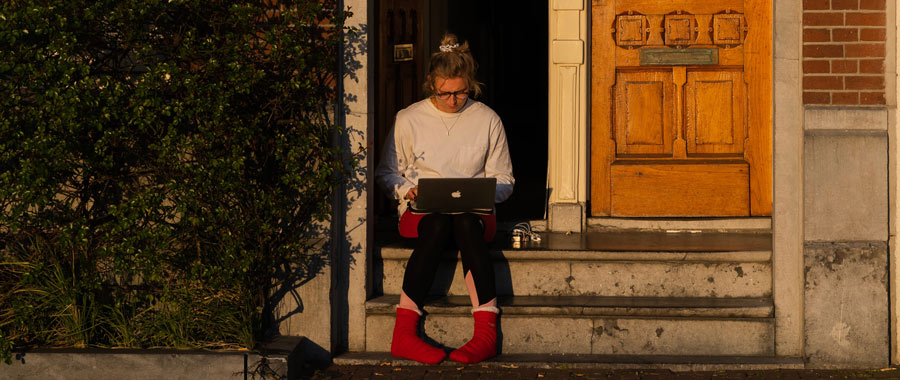In a world where the siren call of screens beckons us ceaselessly, the intersection of technology and spirituality provides a fertile ground for reflection and regulation. The Bahá’í teachings illuminate pathways for using technology as a salubrious tool during the pandemic, much like a skilled artisan employs a chisel to craft a masterwork from a block of marble. This article explores the principles that can guide us in harnessing technology’s vast potential for the greater good, while simultaneously safeguarding our well-being and nurturing our spiritual lives.
The rapid expansion of technology during the pandemic transformed mere necessity into a pervasive reality. Virtual connectivities emerged as lifelines, entwining individuals across continents in shared experiences. Yet, as with the dual-edged sword wielded by early heroes of yore, the potency of technology demands our vigilant stewardship to avoid the perils of overindulgence. Bahá’í teachings advocate for balance and moderation, urging adherents to approach technology with a discerning heart and a reflective mind.
At the heart of Bahá’í philosophy lies the concept of unity — not only among humanity but also between the components of our lives. This principle serves as a guiding star in our navigation through the digital landscape. Engaging with technology should not lead to disconnection from our immediate surroundings or a detachment from our spiritual essence. It is imperative, then, to delineate boundaries that ensure technology serves as an extension of our connections rather than a replacement. Creating designated times for technology use — distinct from moments dedicated to reflection, family, and community engagement — reinforces this equilibrium.
In this context, let us consider the metaphor of a garden. A flourishing garden requires attentive cultivation, the right amount of sunlight, and sufficient water. Likewise, our relationship with technology necessitates intentionality and nurturing. In cultivating a fruitful digital space, one might consider adopting practices akin to gardening: pruning excessive use, planting seeds of mindfulness, and nurturing creativity. Just as a gardener protects their plants from invasive weeds, we must safeguard our minds from the relentless encroachments of distraction and superficiality that technology can sow.
Moreover, the Bahá’í teachings underscore the significance of service — a cornerstone of community building. During the pandemic, we have witnessed an unprecedented surge in digital platforms dedicated to offering support, education, and fellowship. These online spaces can be viewed as virtual sanctuaries, where individuals come together to share knowledge and foster a sense of belonging. Engaging in acts of service through technology, whether by volunteering online, contributing to discussions that uplift, or sharing resources, aligns seamlessly with the Bahá’í commitment to the betterment of humanity. Think of these acts as collective notes in a grand symphony; when played in harmony, they create a resonant melody of unity.
However, as the sweet melody of connectivity plays on, it also necessitates an acute awareness of our mental and emotional health. The unrelenting barrage of information can lead to a state of cognitive overload, a phenomenon increasingly recognized in our hyper-connected age. In response, Bahá’í teachings encourage moderation — a principle that extends to our consumption of news and social media. By consciously curating our digital inputs, we can mitigate the risk of anxiety and burnout. Implementing practices of digital detox, dedicating time away from screens to engage in reflective reading or meditative prayer, cultivates mental clarity and emotional resilience.
Equally important is the nurturing of creativity, which Bahá’í teachings celebrate as an inherent aspect of the human spirit. During confinement, technology became a canvas upon which individuals painted their unique expressions, exploring artistic avenues previously uncharted. Virtual galleries, online workshops, and social media platforms became fertile grounds for cultural interchanges. This creative escapism fosters personal growth and enhances community solidarity, as individuals share their artistic endeavors to inspire and uplift one another. Embracing creativity within the realm of technology invites innovation, breathing life into our daily interactions.
Furthermore, the COVID-19 pandemic has served as a magnifying glass, revealing systemic inequalities exacerbated by our reliance on technology. The Bahá’í community’s commitment to social justice requires us to engage critically with these disparities. The proliferation of technology must be coupled with equitable access for all members of society. As virtual spaces become the norm, advocating for digital inclusivity and supporting initiatives that bridge the technological divide can ensure that the advantages of technology are shared equitably. In this endeavor, technology transforms from a mere tool into a powerful instrument for social progression.
As we navigate the multifaceted layers of technology during the pandemic, continually aligning our actions with the Bahá’í principles of moderation, unity, and service cultivates an authentic digital existence. This approach not only benefits the individual but also radiates outward to foster community well-being. It is in this spirit of connection, where technology ceases to be an isolating force and becomes a mechanism for cultivating deeper relationships, that we can hope to transcend the challenges posed by our current reality.
In conclusion, while the pandemic has amplified our dependence on technology, Bahá’í teachings provide a rich framework for its judicious use. By engaging in mindful practices, promoting creativity, advocating for equity, and remaining ever cognizant of our mental and emotional health, we can leverage technology as a powerful ally. Let us aspire to be the skilled artisans of our digital landscapes, sculpting our experiences with care, intention, and purpose, ultimately crafting a harmonious existence that resonates with the collective well-being of society.
